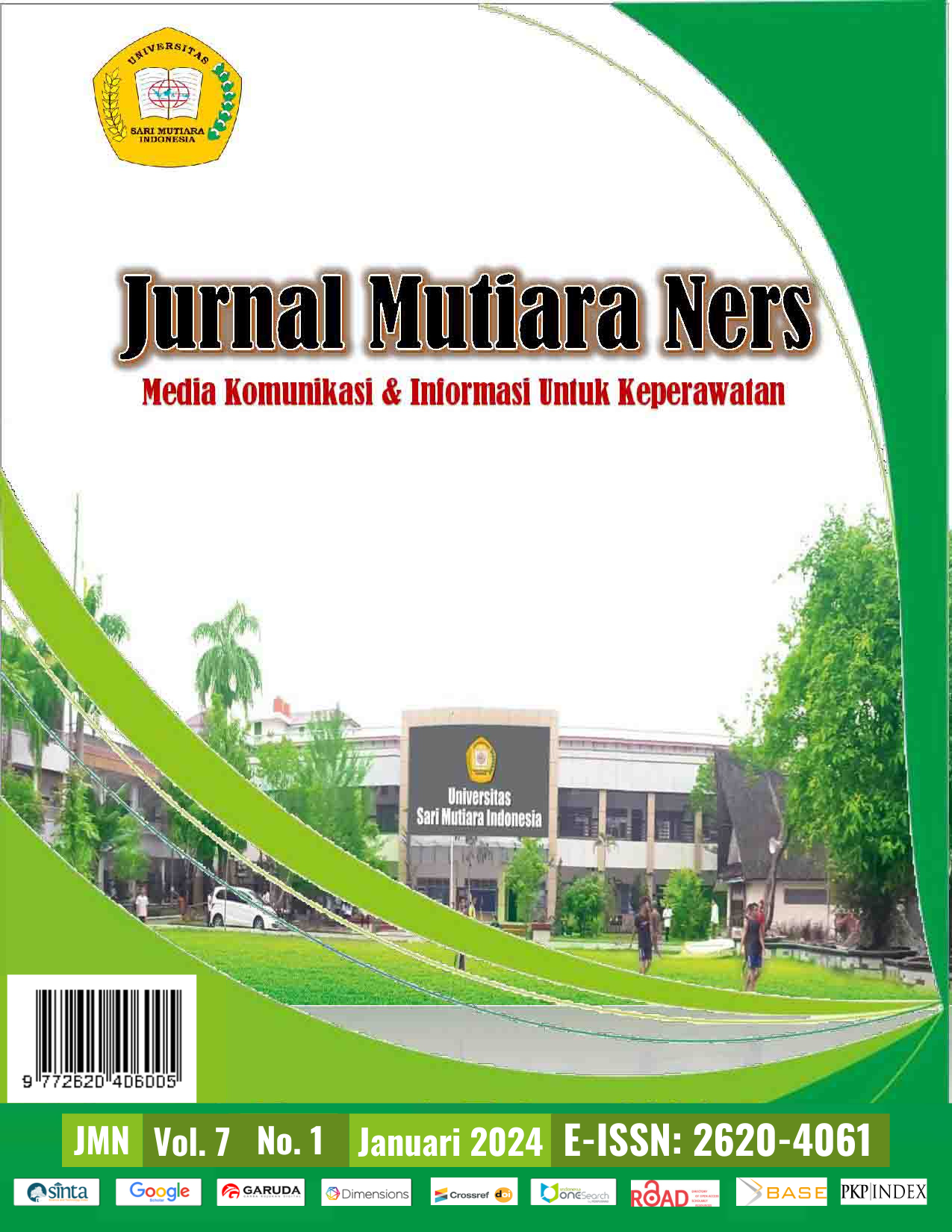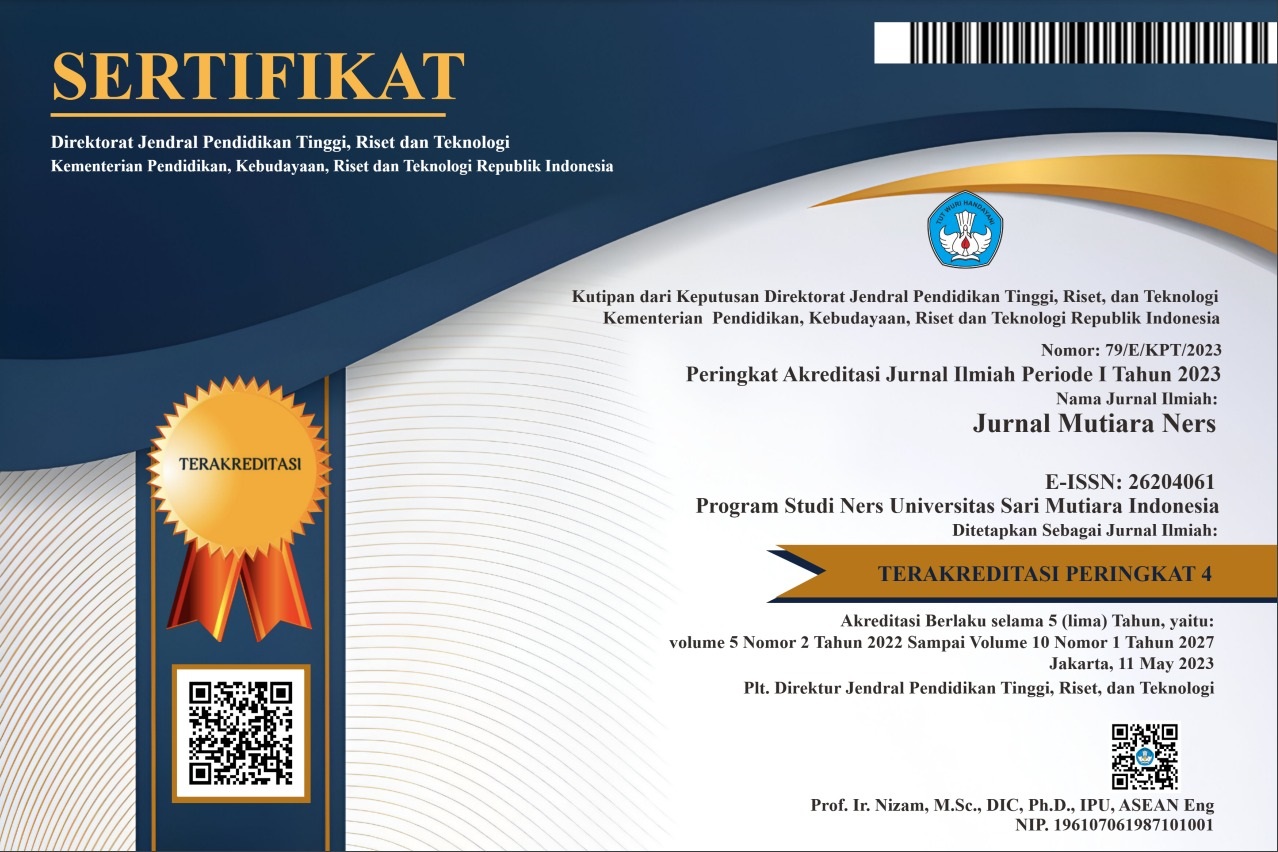KNOWLEDGE, ATTITUDE, AND BEHAVIOR OF THE ELDERLY TOWARDS THE IMPLEMENTATION OF COVID-19 VACCINATION IN SOUTH NIAS, INDONESIA: A CROSS SECTIONAL STUDY
Keywords:
Knowledge, attitude, behavior, elderly, Covid-19 VaccineAbstract
Despite the susceptibility of the elderly to COVID-19, vaccination coverage in this age group is still far from Indonesia's national target. This research studied the implementation of the COVID-19 vaccine in Teluk Dalam, South Nias District, in 2021 and analyzed the relationship between knowledge, attitudes, and behaviour of the elderly towards implementing vaccination. It was a mixed-method study with an explanatory design. The population of this study included the elderly in Teluk Dalam, with a total of 33 people serving as research samples and three informants for qualitative data. Data were obtained by administering questionnaires and interviews, analyzed by the SPSS statistical tool with chi-square test at α = 5%, and compared with the collected qualitative data. The results showed that the elderly in Teluk Dalam's knowledge of implementing the COVID- 19 vaccine was still low, with negative attitudes and behaviour. There was a significant relationship between knowledge, attitudes and behaviour of the elderly towards implementing COVID-19 vaccination in Teluk Dalam, South Nias District (p <0.05). It is recommended that the elderly attend counselling given by health workers so that they can increase their knowledge about the implementation of the COVID-19 vaccination and change their attitude and behaviour and want to take part in the COVID-19 vaccination and health workers to provide information about the implementation of the COVID-19 vaccine to the public, especially the elderly more specific.
Downloads
References
Zhu H, Wei L, Niu P. The novel coronavirus outbreak in Wuhan, China. Global Health Research and Policy. 2020;5(1):6.
Lai CC, Shih TP, Ko WC, Tang HJ, Hsueh PR. Severe acute respiratory syndrome coronavirus 2 (SARS-CoV-2) and coronavirus disease-2019 (COVID-19): The epidemic and the challenges. International journal of antimicrobial agents. 2020;55(3):105924.
Organization WH. WHO Coronavirus (COVID-19) Dashboard 2023. Available from: https://covid19.who.int/.
Organization WH. Indonesia 2023. Available from: https://covid19.who.int/region/searo/country/id.
Djalante R, Lassa J, Setiamarga D, Sudjatma A, Indrawan M, Haryanto B, et al. Review and analysis of current responses to COVID-19 in Indonesia: Period of January to March 2020. Progress in disaster science. 2020;6:100091.
Mahendradhata Y, Andayani N, Hasri ET, Arifi MD, Siahaan RGM, Solikha DA, et al. The Capacity of the Indonesian Healthcare System to Respond to COVID-19. Front Public Health. 2021;9:649819.
Indonesia U. More than 3 million COVID-19 doses arrive in Indonesia via COVAX Jakarta: UNICEF Indonesia; 2021 [cited 2021]. Available from: https://www.unicef.org/indonesia/stories/more-3-million-COVID-19-doses-arrive-indonesia-covax.
Organization WH. Achieving 70% COVID-19 Immunization Coverage by Mid-2022 2021. Available from: https://www.who.int/news/item/23-12-2021-achieving-70-COVID-19-immunization-coverage-by-mid-2022.
Indonesia MoHotRo. Indonesian Health Profile: Ministry of Health of the Republic of Indonesia; 2021. Available from: https://www.kemkes.go.id/folder/view/01/structure-web-content-publikasi-data.html.
Gordon Patti K, Kohli P. COVID's Impact on Non-communicable Diseases: What We Do Not Know May Hurt Us. Current cardiology reports. 2022;24(7):829-37.
Wang X, He Y, Zhang H. How to Influence Behavioral Intention Toward Age-Friendly Home Modifications in Urban Older People Aged 70. 2023;9:23337214231152697.
Adane M, Ademas A, Kloos H. Knowledge, attitudes, and perceptions of COVID-19 vaccine and refusal to receive COVID-19 vaccine among healthcare workers in northeastern Ethiopia. BMC public health. 2022;22(1):128.
Naing L, Nordin RB, Abdul Rahman H, Naing YT. Sample size calculation for prevalence studies using Scalex and ScalaR calculators. BMC Medical Research Methodology. 2022;22(1):209.
Islam MS, Siddique AB, Akter R, Tasnim R, Sujan MSH, Ward PR, et al. Knowledge, attitudes and perceptions towards COVID-19 vaccinations: a cross-sectional community survey in Bangladesh. BMC public health. 2021;21(1):1851.
Busetto L, Wick W, Gumbinger C. How to use and assess qualitative research methods. Neurological Research and Practice. 2020;2(1):14.
Wong L. Data analysis in qualitative research: a brief guide to using nvivo. Malaysian family physician: the official journal of the Academy of Family Physicians of Malaysia. 2008;3(1):14-20.
Sutton J, Austin Z. Qualitative Research: Data Collection, Analysis, and Management. The Canadian journal of hospital pharmacy. 2015;68(3):226-31.
Li H, Cheng L, Tao J, Chen D. Knowledge and willingness to receive a COVID-19 vaccine: a survey from Anhui Province, China. 2022;18(1):2024064.
Jabessa D, Bekele F. Willingness to receive the COVID-19 vaccine and associated factors among residents of Southwestern Ethiopia: A cross-sectional study. 2022;16:1177-85.
Verplanken B, Orbell S. Attitudes, Habits, and Behavior Change. Annual Review of Psychology. 2022;73(1):327-52.
Fieselmann J, Annac K, Erdsiek F, Yilmaz-Aslan Y, Brzoska P. What are the reasons for refusing a COVID-19 vaccine? A qualitative analysis of social media in Germany. BMC public health. 2022;22(1):846.
Ingram C, Roe M, Downey V, Phipps L, Perrotta C. Exploring key informants' perceptions of COVID-19 vaccine hesitancy in a disadvantaged urban community in Ireland: Emergence of a '4Cs' model. Vaccine. 2023;41(2):519-31.
Wonodi C, Obi-Jeff C, Adewumi F, Keluo-Udeke SC, Gur-Arie R, Krubiner C, et al. Conspiracy theories and misinformation about COVID-19 in Nigeria: Implications for vaccine demand generation communications. Vaccine. 2022;40(13):2114-21.
Wolf MS, Serper M, Opsasnick L, O'Conor RM, Curtis L, Benavente JY, et al. Awareness, Attitudes, and Actions Related to COVID-19 Among Adults With Chronic Conditions at the Onset of the U.S. Outbreak. Annals of Internal Medicine. 2020;173(2):100-9.
Kundu S, Al Banna MH, Sayeed A. Knowledge, attitudes, and preventive practices toward the COVID-19 pandemic: an online survey among Bangladeshi residents. 2021:1-15.
Lee M, Kang BA, You M. Knowledge, attitudes, and practices (KAP) toward COVID-19: a cross-sectional study in South Korea. BMC public health. 2021;21(1):295
Published
How to Cite
Issue
Section
Copyright (c) 2023 Ivan Elisabeth Purba, Irene Rostiana Sihura, Yenni Gustiani Tarigan

This work is licensed under a Creative Commons Attribution-ShareAlike 4.0 International License.


.png)





